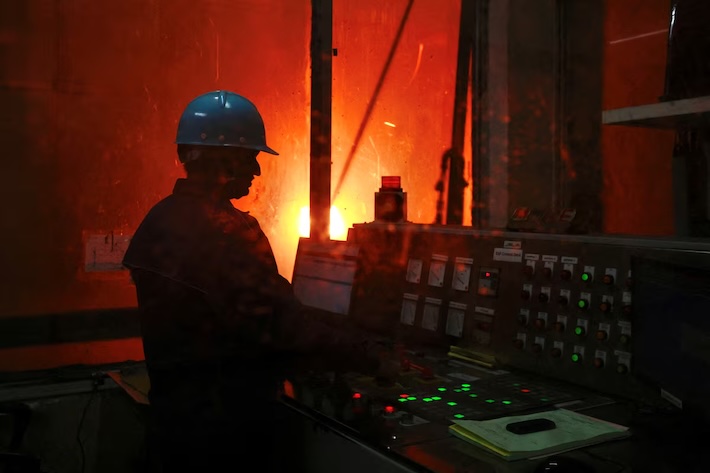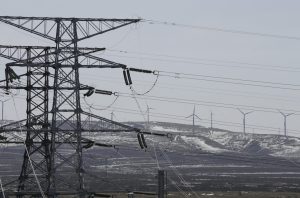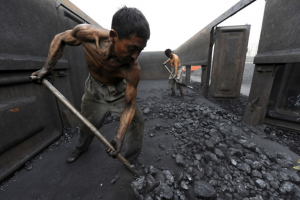A slow regulatory process and financing hurdles have pulled the breaks on India’s long list of projects to decarbonise its major industries, according to a new report by the clean‑industry alliance, Mission Possible Partnership.
The world’s fastest-growing major economy has ambitious plans to clean up its industries with one of the largest project pipelines in South Asia. But of the 53 projects the country has in development, only two managed to reach final investment decision this year, the report said.
Also on AF: Asia’s Billion-Dollar Carbon Boom?
Outdated construction rules and slow regulatory changes are holding back India’s cement industry from adopting cleaner technologies such as calcined clay and low‑carbon cement blends, the report said.
In steelmaking, the transition is hampered by a lack of demand for green steel and an absence of raw materials. Some Indian steelmakers are planning to switch to scrap-based manufacturing and also using biochar as a substitute for coking coal.
But their scalability has been “constrained by limited long-term sustained availability of high-quality scrap and the absence of standardised feedstock for biochar production,” the report said.
India also has scope to capture a significant chunk of the emerging global demand for Sustainable Aviation Fuel, but carriers within the country have been constrained by high compliance costs and inadequate policy support.
Industry estimates suggest that India’s two leading carriers could face $0.5–2.3 billion in costs between 2027–35 to make the switch to sustainable fuel, the report said.
Similar problems have also constrained a clean transition in the chemicals and aluminium industries too, according to the report.
$150 billion potential
High financing costs in emerging markets such as India also limit the bankability of clean‑industry projects, it added.
Some projects in India have already lined up buyers for clean energy and partial funding, but are still waiting for clear rules, permits and access to power transmission and other infrastructure, the study said.
The report also pointed to the lack of demand‑side regulation in India, such as blending mandates or green procurement rules, which are critical to creating markets for clean industrial products.
The study identified 70 projects outside China as “poised” for investment, representing a $140 billion global opportunity, with India among key markets. India is tied with Australia for the highest number in the “new industrial sunbelt,” a group of renewables‑rich countries seen as key to the next wave of global decarbonisation.
The country’s total potential clean industry projects could mobilise more than $150 billion in investment, create over 200,000 jobs, and abate 160–170 MtCO₂e annually, the report said. That would be equivalent to roughly 5–6% of India’s national emissions, it added.
The planned clean plants target several industries, including chemicals, steel, cement, aluminium, and aviation. Most announced projects are in green chemicals, the report said adding they reflect India’s advantages in low-cost renewables.
But the report warned that without enabling policy frameworks, India risks missing out on the industrial transformation already underway in other regions.
China, in comparison, accounted for 12 of the 19 clean‑industry final investment decisions recorded globally this year, the report said.
- Reuters, with additional inputs from Vishakha Saxena
Also read:
India Plans Countrywide Climate Insurance Amid $180bn Losses
A European Push Could Help India Fill Carbon Removal Gaps
New Tax Cuts To Accelerate India’s Shift To Solar, Wind Energy
India Renewable Power Output Jumps, Coal Use Falls in First Half
Extreme Sudden Rainfall Kills Hundreds in Pakistan and India
Firms Underestimating Risks From Carbon-Fuelled Climate Change
Study Says Biochar Can Solve Asia’s Fertiliser Shortages
The Cost of India’s Crop Waste Burning
























